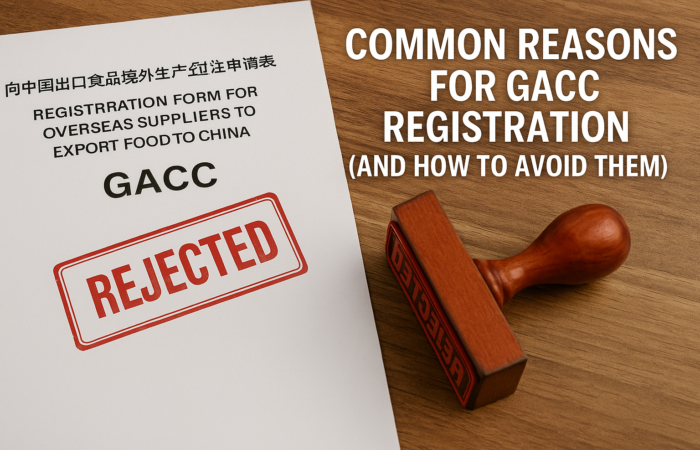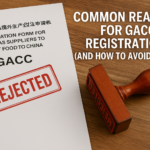Have you ever felt overwhelmed by the sheer scale and potential of China’s massive trade exhibitions? You’re not alone. These events are a goldmine of opportunities, but without the right approach, your investment can easily get lost in the crowd. 🌊💼
Imagine standing in a sea of booths, surrounded by thousands of potential leads, yet struggling to make meaningful connections. It’s a common scenario that leaves many businesses wondering if their exhibition efforts are truly worth it. But what if there was a way to not just participate, but thrive in this bustling environment?
In this guide, we’ll dive into the strategies that can transform your exhibition experience from a mere presence to a powerful catalyst for growth. From meticulous pre-show planning to long-term ROI tactics, we’ll explore how you can maximize every aspect of your participation in China’s biggest exhibitions. Get ready to turn the tide and make your next trade show appearance a resounding success! 🚀📈
Research and Planning
A. Identify key exhibitions in China
China hosts numerous prestigious exhibitions across various industries. Here’s a comparison of some top events:
| Exhibition | Industry | Location | Frequency |
|---|---|---|---|
| Canton Fair | General Trade | Guangzhou | Biannual |
| CIIE | Import/Export | Shanghai | Annual |
| CES Asia | Technology | Shanghai | Annual |
B. Analyze industry trends and market demands
Research current market trends and consumer preferences in China. Utilize industry reports, surveys, and local contacts to gain insights. This analysis will help you tailor your exhibition strategy to meet specific market demands and maximize your ROI.
Pre-Exhibition Strategies
Design an eye-catching booth
- Key elements for an impactful booth:
- Unique layout
- Eye-catching graphics
- Interactive displays
- Adequate lighting
- Comfortable seating
| Booth Feature | Purpose |
|---|---|
| Digital screens | Showcase products/services |
| QR codes | Easy information access |
| Live demos | Engage visitors |
Create compelling marketing materials
Develop bilingual brochures, business cards, and promotional items that reflect your brand identity and resonate with the Chinese market. Ensure all materials are culturally appropriate and professionally translated to effectively communicate your value proposition to potential clients and partners.
Maximizing Engagement During the Exhibition
Utilize interactive technologies
- Virtual Reality (VR) product demos
- Augmented Reality (AR) catalogs
- Interactive touchscreens
- QR code-based information kiosks
Offer exclusive on-site promotions
| Promotion Type | Benefit |
|---|---|
| Limited-time discounts | Creates urgency |
| Bundle deals | Increases average order value |
| Free trials | Encourages product adoption |
Leveraging interactive technologies and exclusive promotions can significantly boost engagement at China’s exhibitions. VR and AR experiences captivate visitors, while touchscreens and QR codes provide easy access to product information. Pairing these with strategic on-site promotions creates a compelling reason for attendees to engage with your booth and products.
Networking and Relationship Building
Attend industry events and seminars
- Maximize networking opportunities:
- Arrive early
- Participate actively
- Exchange business cards
| Event Type | Benefits |
|---|---|
| Seminars | Industry insights, expert connections |
| Workshops | Hands-on learning, peer interaction |
| Mixers | Casual networking, relationship building |
Arrange meetings with key decision-makers
Scheduling face-to-face meetings with potential partners or clients is crucial. Research their companies beforehand and prepare specific talking points. Follow up promptly after meetings to maintain momentum and solidify relationships formed during the exhibition.
Post-Exhibition Follow-up
Implement a systematic lead follow-up process
After the exhibition, prioritize leads based on potential value and interest level. Create a follow-up timeline:
- Immediate: High-priority leads
- Within 1 week: Medium-priority leads
- Within 2 weeks: Low-priority leads
| Lead Priority | Follow-up Method | Timeframe |
|---|---|---|
| High | Phone call + email | Immediate |
| Medium | Personalized email | Within 1 week |
| Low | Standard email | Within 2 weeks |
Analyze exhibition performance data
Evaluate key metrics to assess ROI and improve future strategies:
- Booth traffic
- Lead quality
- Conversion rates
- Cost per lead
Long-term ROI Strategies
Nurture relationships with new contacts
- Follow-up timeline:
- Within 48 hours: Send thank-you email
- Within 1 week: Share relevant content
- Within 1 month: Schedule follow-up call
Leverage exhibition insights for product development
| Insight Source | Action Item |
|---|---|
| Customer feedback | Prioritize feature requests |
| Competitor analysis | Identify market gaps |
| Industry trends | Align R&D efforts |
Now that you’ve gathered valuable insights from the exhibition, it’s crucial to integrate them into your long-term strategy. Start by nurturing relationships with new contacts through a structured follow-up plan. Simultaneously, leverage the exhibition insights to drive product development, addressing customer needs and staying ahead of industry trends.
China’s biggest exhibitions offer unparalleled opportunities for businesses to maximize their return on investment. By following a strategic approach that encompasses thorough research, pre-exhibition planning, active engagement during the event, and diligent post-exhibition follow-up, companies can significantly enhance their presence and impact in the Chinese market.
To truly maximize your ROI, focus on building lasting relationships, leveraging digital platforms for continued engagement, and implementing long-term strategies that extend beyond the exhibition itself. Remember, success at these events is not just about immediate sales, but about laying the foundation for sustained growth and partnerships in one of the world’s most dynamic markets. Take the insights gained from these exhibitions and use them to refine your approach, ensuring each subsequent participation yields even greater returns.



